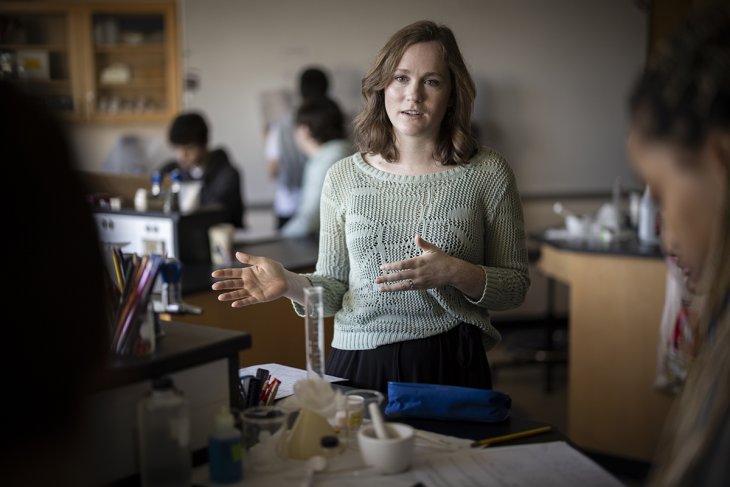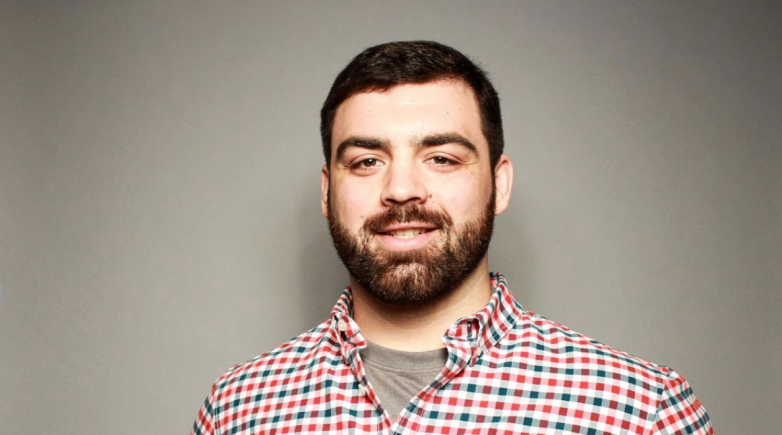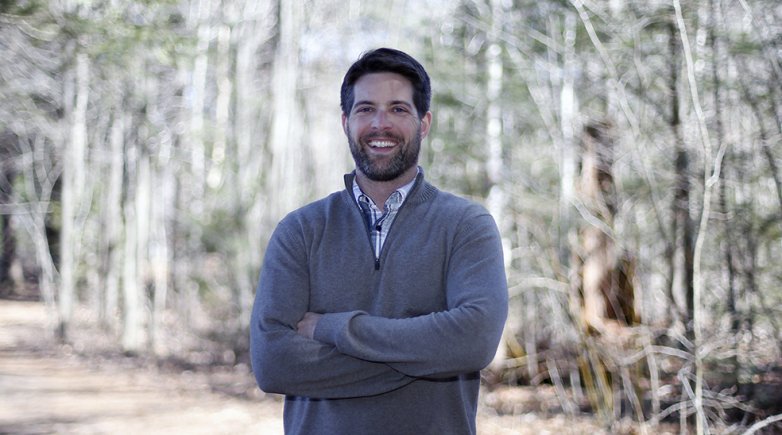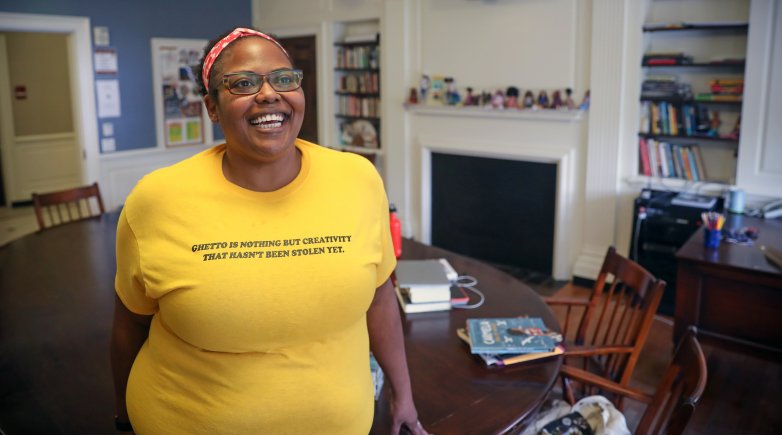Summer Morrill

“I'm really invested in thinking about how we can encourage kids from a younger age to see what it’s like to be a scientist."
You know yeast as a key ingredient in baking bread or brewing beer, but did you know it can also be an essential ingredient in the science lab? Because yeast cells are genetically similar to human cells, scientists often use the microscopic fungus to study biological questions or test the effects of drugs or enzymes. This school year, Exeter’s biology students are getting hands-on experience in their very own yeast lab thanks to Science Instructor Summer Morrill ’11, who obtained funding last summer from her department to bring the lab to the Academy.
“It’s an opportunity for students to do independent research that is cheap and accessible and easy to use,” says Morrill, who has been working with students in the yeast lab for introductory biology classes all the way up to senior projects. “I'm really invested in thinking about how we can encourage kids from a younger age to see what it’s like to be a scientist. To feel what it's like to troubleshoot, to ask your own question and get to design an experiment that will answer it.”
As a four-year day student from Amesbury, Massachusetts, Morrill was a self-described “math kid” who discovered her love for biology and genetics at Exeter. She got her own first taste of what it was like to do hands-on scientific research while working with former Science Instructor Erik Janicki on a project at UNH’s Whistler Lab during the summer after her upper year, studying the genetics of bioluminescent bacteria. In the lab, Morrill says, “you're always asking new questions, adjusting, trying to figure out how things work, and I found that really exciting.”
Morrill earned her B.A. in biology at Tufts University and went straight through to MIT for her Ph.D. She was motivated to study genetics in part due to a history of breast cancer in her family, and at one point considered becoming a genetic counselor. “The idea that I could really use my understanding of genetics to help folks who were going through a genetic diagnosis was very appealing,” she says. Ultimately, she decided she was more suited to the academic side of science, especially after getting experience teaching during her graduate program.
“I loved my lab, I loved the work that I got to do, but the best part of my day was going in and working with students,” Morrill says. “Teaching for me is just one of those ways that I get to connect and share things that I love.”
After graduating in May 2020, in the midst of the COVID-19 pandemic, Morrill worked in MIT’s biology department as an instructor and built a training and certification program for undergraduate and graduate teaching assistants. But she was drawn to teaching smaller classes and younger students, an ambition she fulfilled when she returned to Exeter as a full-time instructor in science in 2022.
“The high school age is the time when everyone's just hungry for knowledge and trying to figure things out,” Morrill says. “This is a place where we can help kids [start] to see themselves as scientists, which is pretty cool.”
It wasn’t Morrill’s first time back on campus: She worked as a teaching intern at Exeter Summer after college (and returned as a teacher in 2020 and 2021). And in 2019, she tied the knot with her longtime partner, Alex Braile ’10, in Phillips Church, surrounded by many of their Exeter classmates. The couple now live in Soule Hall, where Morrill is the dorm head.
In addition to introductory biology classes, Morrill teaches introductory genetics and molecular genetics, as well as a new field course/special topics course in cancer biology, BIO999: The Genetic Basis of Cancer. “A lot of people, like myself, have those family connections to cancer or know someone with cancer,” Morrill says. “Cancer’s not one disease; it’s basically anytime your cells go wrong. Being able to actually understand what that means, and getting to put our problem-solving hats on and think about it around the table has been really fun.”
Returning to the Harkness classroom as a teacher proved to be an eye-opening but exhilarating experience for Morrill. “Oftentimes it seems like a Harkness teacher might just be taking a step back from the table and allowing things to unfold,” she says. “But there's a lot that goes on behind the scenes.”
Morrill relishes the idea of taking a research mindset into the classroom, and thinking of teaching as an iterative process that can and should be constantly changed and adjusted. “Teaching here is really dynamic,” she says. “What works for one class of students won't always work for the other class, and you're never going to keep it the same.”
— Sarah Pruitt '95



